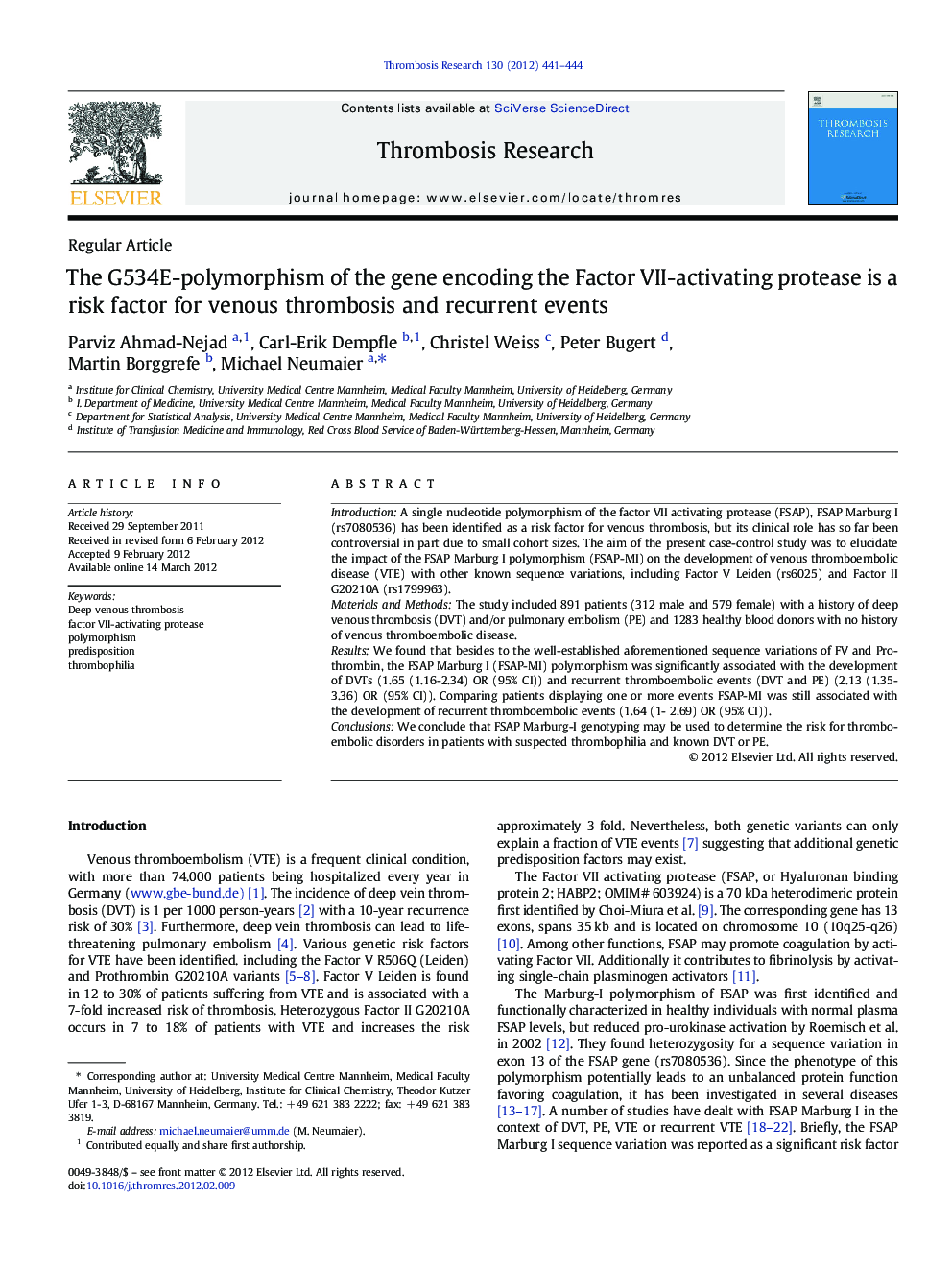| Article ID | Journal | Published Year | Pages | File Type |
|---|---|---|---|---|
| 3028275 | Thrombosis Research | 2012 | 4 Pages |
IntroductionA single nucleotide polymorphism of the factor VII activating protease (FSAP), FSAP Marburg I (rs7080536) has been identified as a risk factor for venous thrombosis, but its clinical role has so far been controversial in part due to small cohort sizes. The aim of the present case-control study was to elucidate the impact of the FSAP Marburg I polymorphism (FSAP-MI) on the development of venous thromboembolic disease (VTE) with other known sequence variations, including Factor V Leiden (rs6025) and Factor II G20210A (rs1799963).Materials and MethodsThe study included 891 patients (312 male and 579 female) with a history of deep venous thrombosis (DVT) and/or pulmonary embolism (PE) and 1283 healthy blood donors with no history of venous thromboembolic disease.ResultsWe found that besides to the well-established aforementioned sequence variations of FV and Prothrombin, the FSAP Marburg I (FSAP-MI) polymorphism was significantly associated with the development of DVTs (1.65 (1.16-2.34) OR (95% CI)) and recurrent thromboembolic events (DVT and PE) (2.13 (1.35-3.36) OR (95% CI)). Comparing patients displaying one or more events FSAP-MI was still associated with the development of recurrent thromboembolic events (1.64 (1- 2.69) OR (95% CI)).ConclusionsWe conclude that FSAP Marburg-I genotyping may be used to determine the risk for thromboembolic disorders in patients with suspected thrombophilia and known DVT or PE.
